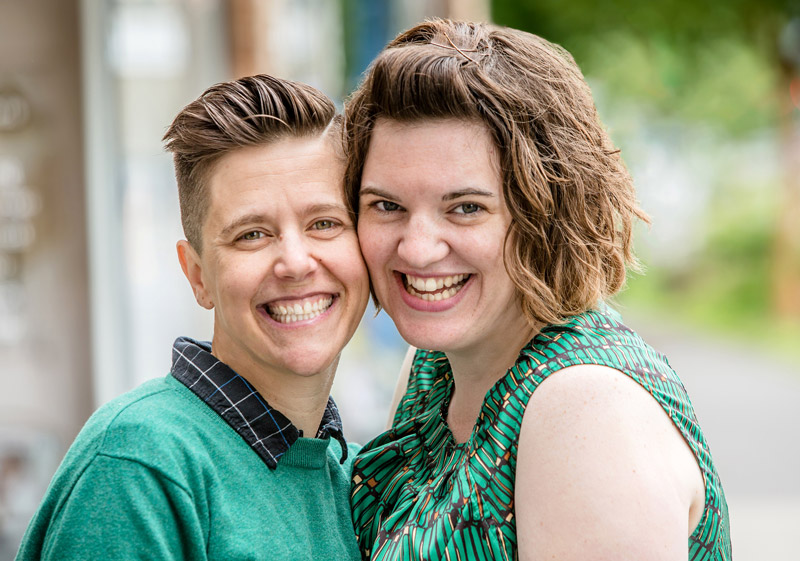Historically, professionals have assumed autistic people are incapable of engaging in partnered sexual activities or are uninterested in intimate relationships. Most services for autistics continue to focus on affected family members with children. Until recently, research on autistic sexual relations was directed at controlling and regulating the behaviors of autistic and other disabled people. Instead, these marginalized groups are now seeking to explore and express their sexual identities.

We see increasing recognition among academics, caregivers, and clinicians that autistic adults have a right to advocate for themselves as sexual beings. While autistic self-advocates have made gains, services to specifically address the sexual needs of autistic adults do not exist yet. Television shows like Love on the Spectrum and Atypical acknowledge that autistic children do indeed grow into adults who experience romantic interest, so there has been progress. However, even this programming usually includes the participation of parents and their commentary on the adult subjects’ personal lives. On a cultural level, including parental perspective in this type of media content serves to further diminish autistic autonomy.
At the same time, autistic people often require additional skills or supports to effectively communicate and navigate nuanced interactions. Autistic people have a range of abilities and strengths and should be seen as being capable of making their own decisions. Many have been through training or therapies that encourage compliance at the expense of recognizing their own needs. This becomes especially difficult for people who lack interoception, the awareness of one’s internal bodily sensations; or who experience alexithymia, difficulty with knowing and naming emotions. We need to develop a sex education curriculum customized to the communication and decision-making needs of autistic people.
The sexuality of disabled adults has long been viewed as a social issue because of a wish to prevent unintended pregnancies. Fear of the disabled reproducing and potentially creating more disability or dependents for society to contend with has led to denial of the full adulthood and personal liberty of autistic people, particularly those with high support needs and those who remain in institutions.
With the advent of the #MeToo movement, interest heightened in the topic of consent during sexual interactions. For autistic people and their partners, it remains especially important to develop skills and awareness about consent. Here are some elements of autistic experience that contribute to difficulties, with suggested strategies.
Sensory Issues
Autistic people deal with unusual reactions to noise, fragrance, and lighting. One partner might experience irritation from background music intended to set a romantic mood. These sensory challenges often apply to tactile sensations as well. Someone may become distracted by a gentle caress or a surprise embrace. Autistics may feel pleasure from different sensations or levels of intensity than neurotypical people. For example, it is common that autistics request touch with deeper pressure; some experience sexual pleasure through stimulation that would be perceived as painful by a neurotypical person.
Processing Time
Needing extra time to think of what they want to say, as well as finding the right words, autistic partners may struggle to adjust to changing circumstances as a sexual encounter develops. A non-autistic partner can associate spontaneity with romance and excitement while the autistic partner finds unplanned intimacy overwhelming. The autistic person may agree to a position or activity, only to find what they thought would be enjoyable is not as anticipated. This can lead to meltdowns or shutdown episodes that result in misunderstanding, hurt feelings, or worse.
Uneven Social Development
Autistic people are nine times as likely to be intellectually gifted as the general population. This can create a misleading impression of a mature social presentation in someone who is sexually naïve. Confusion comes up when the experienced partner realizes the bright person with a broad vocabulary or intellectual prowess doesn’t know how to navigate an intimate interaction. Preventing abuse of autistic people involves teaching them how to differentiate what types of contact feel wholeheartedly good and what is unwelcome. This means focusing on identifying sensations of pleasure and enthusiasm.
Sexual Minorities
Autistics are six times more likely to be LGBTQIA than the general population. This factor increases vulnerability to harassment and abuse. Until recently sexual minorities encountered difficulty finding suitable partners in adolescence and deferred dating until college or later. With greater social acceptance this is finally changing, but in general Autistic young adults tend to be “late bloomers” and thus have less opportunity for learning experiences.
Helpful Tactics
Autistics are every bit as diverse in their sexual interests and practices as non-autistics; some value a robust interest in sex and imaginative intimate lives while others could take it or leave it. Adapting to the above challenges involves cooperation and modifying expectations about how to express oneself. Partners can strive for flexibility in accommodating one another. For example, partners can problem-solve tactful ways for the sensory-sensitive person to express discomfort without rejecting the other person.
Autistic people can benefit from guidance about relationships and dating in general. The tendency to communicate directly and avoid small talk can make it difficult to connect with prospective partners. In terms of sexual interactions and consent, specific behavioral guidance can increase confidence and reduce misunderstandings and awkwardness.
Clinicians and educators can equip autistic adults with language and non-verbal communication so they can interact effectively in dating and sexual encounters. Examples of this include talking about a yes/no/maybe list prior to sexual activity; using gestures and signals to indicate overwhelm or need for a break or typing out text communication on a phone. Someone who craves spur of the moment liaisons can work with their partner to identify what conditions or circumstances may make this possible. Meanwhile they can also broaden their repertoire to welcome excitement through planning and preparing for sex, sharing suggestive daytime text messages or flirtatious exchanges that cultivate anticipation for both people.
Partners can vary the communication medium they use as needed, so that a shoulder tap or shaking one’s head serves to convey discomfort when talking isn’t accessible. People who demonstrate caring and affection by accepting a range of behaviors, not just conventional or preferred styles, are much more likely to enjoy and sustain the intimate aspect of their relationship.
Future Directions
Services for autistic adults are progressing in terms of independent living opportunities, supported communication and recognition of autistic strengths. Along with these promising trends, the focus in sex education for disabled people on preventing problems like unintended pregnancy or STIs needs to shift to teaching about consent, pleasure and fulfilling relationships. This sex-positive, affirming framework will lead to increased sense of pride in autistic identity and seeing oneself belonging to a community of full-fledged adults.
Kate McNulty, LCSW, had a long career as a therapist when she began to realize she was autistic and came from a thoroughly autistic family. She has since incorporated this awareness into her practice and now sees many autistic adults. Her latest book is “Parenting Adult Children.” Her previous book, Love and Asperger’s, was published in 2020. For more information, please visit www.AutisticTherapist.com.
Morrigan Hunter, MA, MSW, is passionate about leading conversations on disability, sexuality, consent, and pleasure. Some of their recent work includes guidelines for providing trauma-informed care to Autistic adults and to survivors of abuse who experience disability. They are Autistic and agender.







[…] did a quick google search and found an article about autism and sexual consent. the “helpful tactics” section i found uniquely helpful for my […]